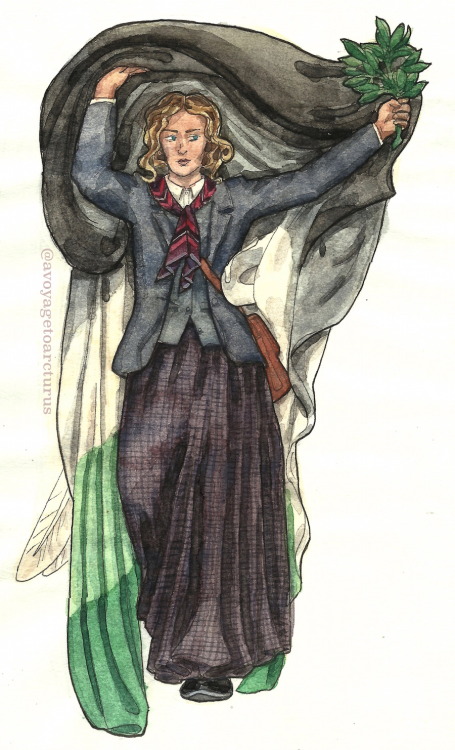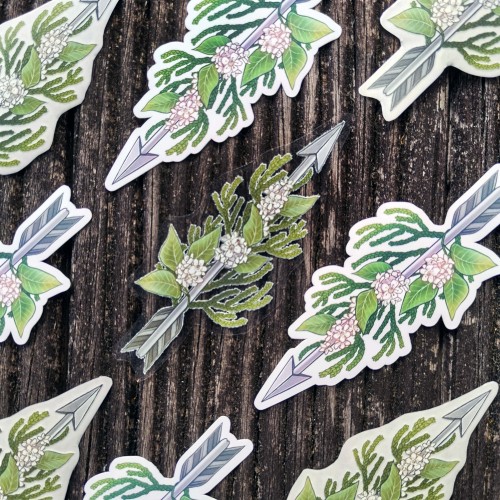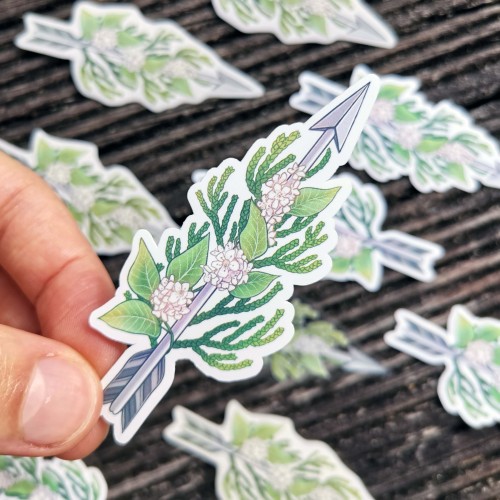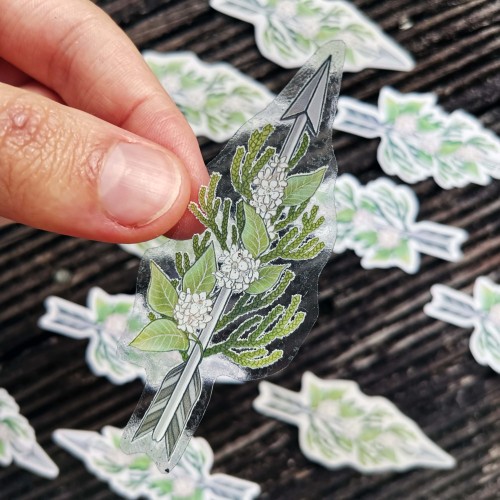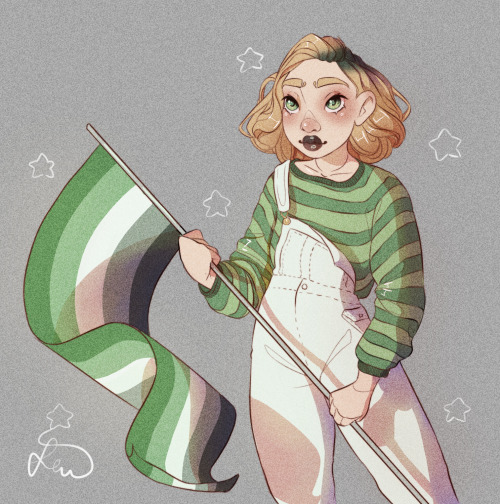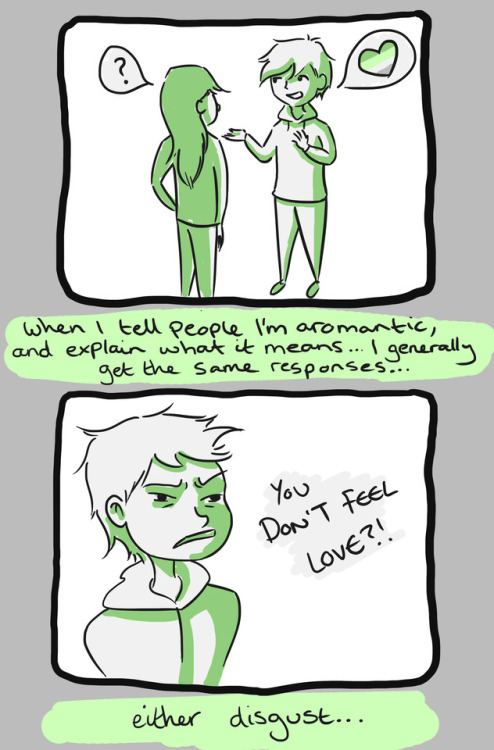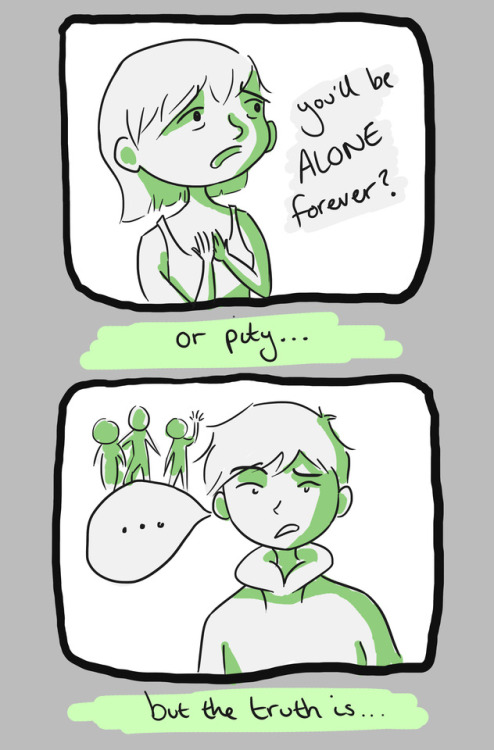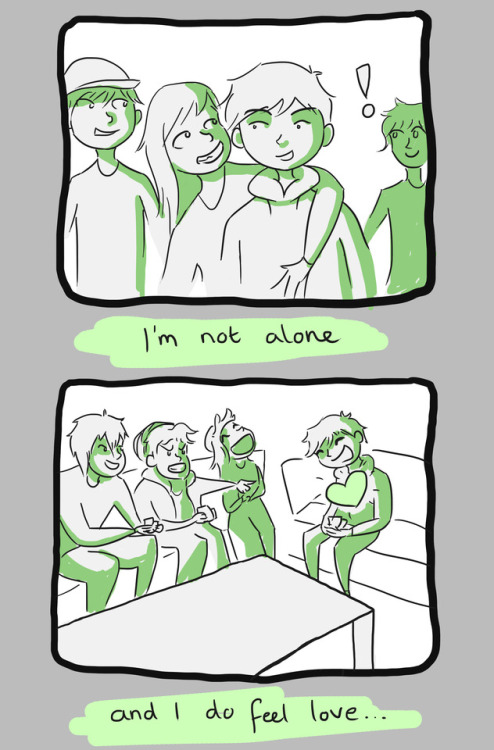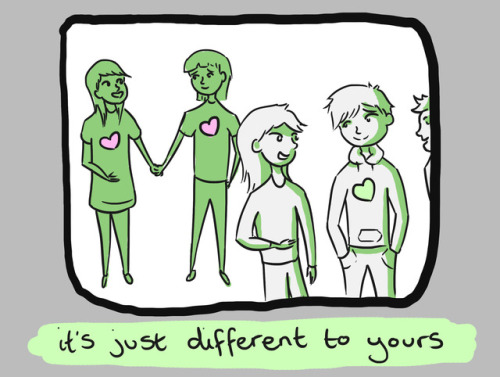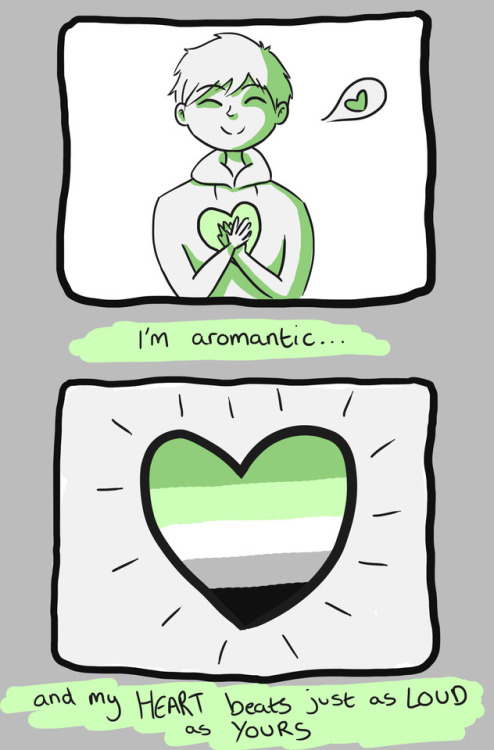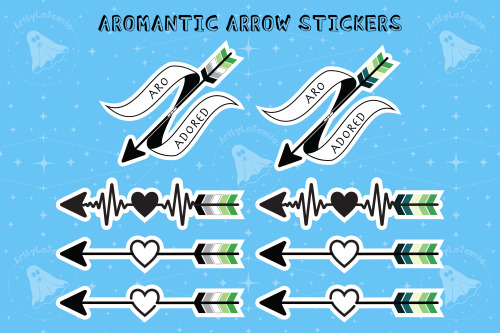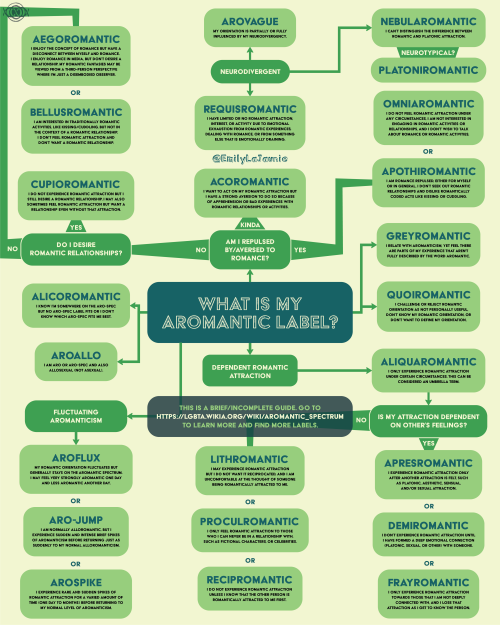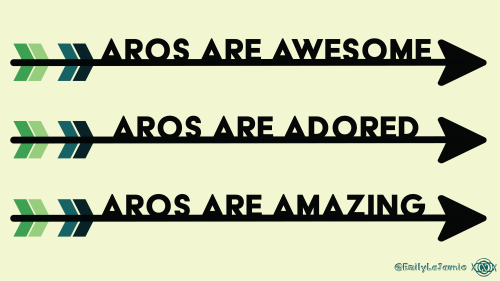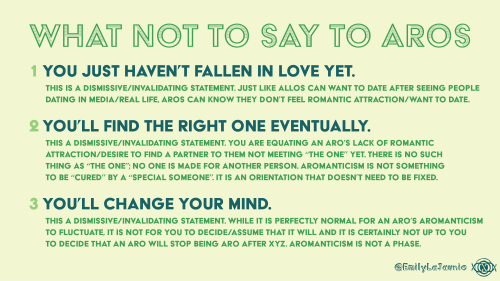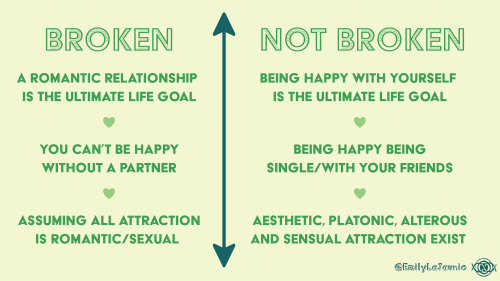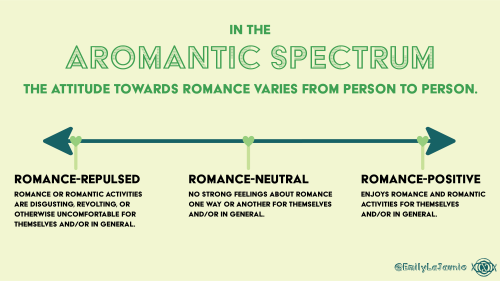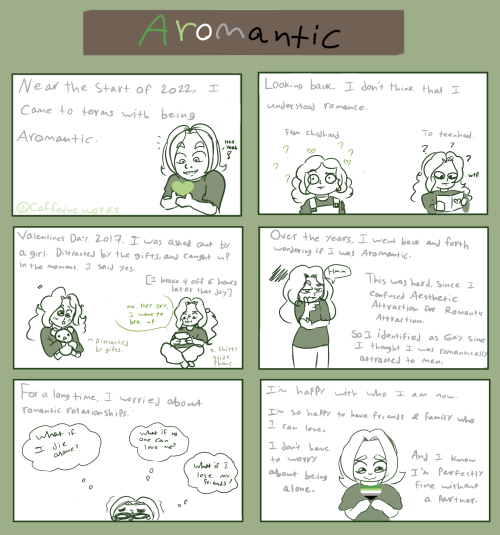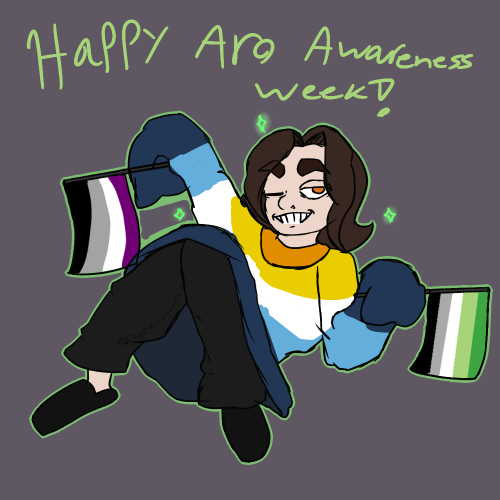#aromantic awareness week
I don’t see why I don’t love you as you want me to… I don’t know why.
-Jo March, Little Women 2019
Aromantic Jo March for Arospec Fanworks Week / Aromantic Awareness Week! Inspired by a Concord, Massachusetts landmark
Post link
Reminder that aromantic awareness week is coming up! February 19 - 25
I will be bringing back some of my old aromantic posts from previous years but I invite anyone on the aro spectrum to talk about it and tell their story throughout the week!
OF COURSE this includes:
Asexual Aros
Allosexual Aros
Trans Aros
Nonbinary Aros
Lesbian Aros
Gay Aros
Bisexual Aros
Pansexual Aros
Autistic Aros
Disabled Aros
Aros of Color
Closeted Aros
Out and Proud Aros
Romance-Repulsed Aros
Romance-Indifferent Aros
Romance-Favorable Aros
Younger Aros
Older Aros
Christian Aros
Muslim Aros
Jewish Aros
Aros of All Faiths
Aros across the Ace-Spectrum
Aros Across the Aro-Spectrum
All yall are valid and beloved <3
Let’s end ASAW with a new survey I have been working on. I’ve decided to have a survey on one aspect of aromantic identity that I haven’t seen discussed, which is preferences towards sexual relationships.
Who this survey is aimed at: any aromantic above the age of 18 can participate, but I am particularly interested in aros who experience sexual attraction or sexual desires, aros who have previous experiences with sexual relationships, and aros who are curious about sex in general. This includes sex favorable aroaces, but also aro who tried sex and decided it was not for them, or sex repulsed aroallos. You can participate if you have no sexual experience.
What this will ask you: general demographic questions, whether you have previous sexual experiences (prefer not to say is an allowed option), what relationship dynamics do you or would you prefer to have with a sexual partner (committed or not, qprs, fwb, etc.), and a few personal opinions on how aromanticism relates to sexuality.
What this will NOT ask you: any details about preferred sexual positions, acts or kinks, any details about your sexual fantasies, any information about your sexual partners, or any identifying personal information.
The survey does not accept participants under the age of 18. I ask anyone below that age (or below the age of adulthood in your country) not to participate, although you may of course share the link to the survey with others if you want.
> The link to the survey is here <
…but you’re not sure how to go at it. Maybe you don’t know much about aromantic people, or you don’t know if your representation is respectful. This post is meant to be a primer on how to go about making an aromantic character for your story.
This is a fairly long post with multiple sections under the read more. How much of it will be useful to you depends on what you want to write. I’m writing this post as something that could be helpful to an alloromantic writer who plans on making an aromantic main character in an original novel, but of course different writers making different kinds of stories won’t all need to think about the same things nor do the same amount of research.
The post is organized in the following sections:
Part 1: Building your character’s identity - a series of questions you may ask yourself when creating an aromantic’s character identity
Part 2: Relationships - summary of the main types of relationships aromantic people can have
Part 3: Arophobia and amatonormativity - summary of the kinds of discrimination and struggles aromantic people face
Part 4: Bad representation and negative stereotypes - what aros don’t like to see in fiction, especially about ourselves
Conclusions -…conclusions
Resources - some links to websites and articles you may use to do some beginner research
An important thing to note: I am writing this post as a single aromantic person. Not everyone in the aro community may agree on everything. Furthermore, while I have given a quick rundown of many topics, this is hardly a complete guide. Research is your friend.
Part 1: Building your character’s identity
One thing to keep in mind is that aro people are very diverse. There isn’t one single way to be aromantic, quite like there isn’t a single way to be gay, or bi, or trans. Here’s some things you may want to think about when building an aromantic character.
What is their specific orientation? An aromantic person is someone who experiences little to no romantic attraction. Often, it’s used to indicate someone who feels no romantic attraction whatsoever. However, there are also people who feel romantic attraction very rarely, in an unusual way, or don’t know whether they feel it or not. These people are also part of the aromantic spectrum. A (partial) list of some common arospec identities includes:
- demiromanticism: feeling romantic attraction only for people one has already formed a strong emotional bond with
- greyromanticism: only feeling romantic attraction in very rare occasions, or feeling a very weak form of it
- quoiromanticism: an identity characterized by not knowing or understanding the difference between romantic attraction and platonic feelings
- cupioromanticism: not feeling romantic attraction, but still desiring a romantic relationship
- apothiromanticism: a subset of aromanticism where one is repulsed by romance
- lithromanticism / akoiromanticism: two names for an identity where one can experience romantic attraction, but doesn’t want to act on it, or where the romantic attraction fades if it is reciprocated
- nebularomanticism: an aromantic identity that is tied to a person’s neurodivergence
- freyromanticism: feeling romantic attraction only for people one doesn’t have a strong emotional bond with, with the attraction fading once someone gets close to the other person
More about aromantic identities can be found in the Resources section at the end of the post.
Are they asexual or allosexual? An aromantic person can be aromantic and asexual (aroace, for short) or aromantic and allosexual (aroallo or alloaro, for short). If your aromantic character is asexual, you may also want to figure out where on the asexual spectrum they are. If they are allosexual, you may want to figure out what their sexual orientation is.
Also, there are some people who don’t label themselves as either aroace or aroallo. These people may call themselves non-SAM aro (SAM -> Split Attraction Model). A non-SAM aro may be technically asexual or allosexual, but decide that they don’t want to define their sexual orientation, or think that their sexual orientation is less important to them than their aromanticism.
What are their feelings on romance? Some aromantic people are romance repulsed, that is, they find romance to be upsetting. There are also however aromantic people who are romance favorable, who think romantic gestures/relationships are nice and may want to participate in them themselves. There are also people who just don’t care either way.
Keep in mind, romance repulsed people may find themselves upset by seeing other people acting in a romantic way with their romantic partner. This isn’t a sign that that person doesn’t want others to be happy, nor is it a sign of homophobia if the relationship they are witnessing is a same gender one. They have issues with romance as a whole, not with the people involved.
Keep also in mind, romance favorable people can be aromantic while also enjoying romance and (at times) wanting to participate in it. Aromanticism is about not feeling romantic attraction, not about what actions a person does or doesn’t take. An alloromantic person can daydream about their future wedding day without being in a relationship or having a crush, right? An aromantic person can also daydream about themselves in a fancy white wedding dress without being romantically interested in anyone.
Now, things aren’t always simple. The intensity of repulsion different people have for romance may vary, with some people being mildly annoyed by it and some being strongly disgusted. Some people may be romance repulsed one day and favorable the next, with their feelings changing depending on the context. Some people can enjoy romantic fiction but not care about romance in real life. Some people have no problem with romance in general but become extremely repulsed when they are the object of romantic attentions. It’s not as simple as saying this person is romance repulsed/indifferent/favorable, some people’s feelings can be extremely complex.
That being said, it’s alright to pick a simple description for your character and go with it. People who are universally romance repulsed/indifferent/favorable exist, so it’s alright to create an aromantic character with “simple” feelings towards romance.
Are they partnering? An aromantic person can have or desire a relationship, but not everyone does. An aromantic person may desire a romantic relationship (even if they don’t experience romantic attraction), or a queerplatonic relationship, or a friends with benefits kind of relationship, or other forms of relationships. On the other hand we have nonpartnering aros, who don’t want any kind of committed relationship.
And out of the aros who do want a relationship, some may be interested in all the types of relationship I mentioned, while others are interested in only one specific kind. Aros can also be monogamous or polyamorous.
Do they love? This may sound like a strange question if you aren’t familiar with the aromantic community. There are some aromantic people who have a lot of love to give, who love their friends, families, pets, hobbies very intensely and powerfully. Lovequeer is a term indicating the rejection of the way romantic love is seen as the most powerful or important form of love, and instead choose to redefine what love means for themselves.
We have, on the other hand, loveless aros. Loveless is a term that indicates complete rejection of the concept of love. A loveless individual can decide that they don’t want to call any of their feelings love, no matter whether they technically fit the definition of love or not. While a loveless aro may still experience very powerful feelings of affection (that they simply decide not to call love), some loveless aros don’t experience feelings deep or powerful enough to call them love. If you don’t understand why would anyone decide to call themselves loveless, I suggest you go down to the Resources section.
Do they feel other types of attraction? Romantic and sexual attractions aren’t the only ones that exist. Other forms of attraction include:
- platonic attraction: being attracted to people in a “friend” way, having a strong desire to form a platonic bond with someone;
- aesthetic attraction: being attracted to people’s looks, without being interested in sexual acts, simply admiring them;
- sensual attraction: wanting to do sensual actions with people (such as cuddling, caressing, kissing), without progressing into sex;
- alterous attraction: a form of attraction that cannot be described as either romantic or platonic;
- queerplatonic attraction: a form of attraction different from romantic or platonic attraction that may be connected to the desire of entering a queerplatonic relationship (more on queerplatonic relationships in Part 2).
An aro person can experience every type of attraction listed above, or they can experience no form of attraction at all.
Consider also intersection. Aromanticism can intersect with other sides of someone’s identity. Factors such as other queer identities, gender, race, disability, neurotype, age, religious background, class, all of these may influence the way someone experiences aromanticism.
Furthermore, the aro community online is very focused on American perspectives. Aromantic experiences in other parts of the world may differ wildly from those of American aros. An aromantic from the USA will have to deal with a very different set of expectations and cultural norms and language surrounding them than an aromantic from Bolivia, or from Armenia, or from Indonesia.
In the Resources section I have linked some discussions relating to intersectionality. That being said, if you are interested in writing a story about real life discrimination more research may be needed depending on how familiar you are with your character’s identities.
Part 2: Relationships
As I said, some aromantic people are nonpartnering, and they don’t wish to have any kind of committed relationship. They may still desire friends, but don’t want a partner of any kind. These people deserve representation too, so keep that in mind. Do write about nonpartnering aromantic characters!
Other aromantics do wish to have a relationship. This can be because they want a long lasting, committed partnership. They can also experience other forms of attraction that are not romantic - sexual attraction, for example, but also platonic attraction or sensual attraction, to name some. Also, some arospec people can experience romantic attraction on some occasions and decide to act on it.
Here are some examples of common types of relationship an aromantic person may be in.
Queerplatonic relationships
Queerplatonic relationships are committed relationships that are not romantic in nature. This definition may seem vague, and it’s because it’s meant to be. Queerplatonic relationships can take many different forms depending on the needs of the people involved. Both aros and allos can enter a queerplatonic relationship, but they are more common when at least one partner is aro.
Making a list of all the forms a queerplatonic relationship can have is impossible, but here are a few example for inspiration:
- two (or more) people who don’t have romantic feelings for each other, but have decided to live together and form a family together;
- two (or more) people who have decided to live together, whose arrangement looks more like roommates than a family unit;
- two (or more) people who have a non-romantic sexual relationship;
- two (or more) people who don’t live together but have a very emotionally intimate relationship;
- two (or more) people who are “best friends”;
- two (or more) people who have a long distance, emotionally intimate relationship.
A queerplatonic relationship may or may not include any of the following, depending on what the people involved want:
- living together;
- having children;
- adopting pets;
- sex;
- cuddling;
- hand holding;
- kissing;
- pet names;
- (platonic) dates;
- (platonic) marriage.
A queerplatonic relationship can be monogamous or polyamorous. The same person can have different queerplatonic relationships with different characteristics with different people at the same time. Some people can also have both queerplatonic and romantic relationships at the same time.
Overall, if you want to write a queerplatonic relationship, just go wild. This is literally a build your own kind of relationship. The only thing to keep in mind is that it’s explicitly meant to be a non-romantic relationship. I guarantee that your aro readers will vibrate with excitement at any mention of the word queerplatonic.
Sexual relationships
Some aromantic people may have non-romantic sexual relationships. This can include friends with benefits arrangement, sexual queerplatonic relationships, or someone they only know in the context of sex. Aros can also have casual sex of course, but here I’m focusing more on committed forms of relationships.
An important thing to remember is that these relationship aren’t shallow or predatory. One person can have non-romantic sex with another while also respecting them deeply, or caring about them. You can have the best of friends also happen to have sex with each other. You can also have two people who aren’t really emotionally close, they just happen to enjoy having sex together, but also strongly respect each other.
Friendships
I don’t think I need to explain what a friendship is, as that is fairly universal. What I want to underline is that the idea of friendship being a shallower or less important type of relationship than romantic relationships is something aros tend to universally resent. Give your aromantic character friendships, and don’t be afraid to make them as intense and powerful as you would write a romantic relationship. Just, without the romance.
(And honestly, give your alloromantic characters deep and powerful friendships too)
Romantic relationships
Some aros want a romantic relationship, while still being aromantic. One possibility is that they are an arospec person who experiences occasional romantic attraction and they have decided to act on it. We can also have people who do not experience any romantic attraction, but still decide to participate in a romantic relationship. This could be because they enjoy actions typically seen as romantic, or because they feel other types of attraction (such as sexual, alterous, etc.) towards their romantic partner and a romantic relationship can satisfy their needs well enough.
Now… If you are alloromantic, you may think cool! I know how to write romantic relationships! But it may actually be tricky to handle aromantic characters in romantic relationships. Think about it: would an aromantic person who feels no romantic attraction have the same kind of experiences within a romantic relationship than an alloromantic person does? Probably not. Even if your character can feel romantic attraction, if they are arospec, they may have a very non-alloromantic relationship with it.
Some examples of things to think about:
- if your aro character experiences romantic attraction, are they also going to act on it? For example, a romance repulsed person may experience romantic attraction, but still have no desire to pursue a romantic relationship;
- if your aro character gets into a romantic relationship, do they like all of the things typically part of a relationship? For example, your character may hate kissing, and ask their partner not do it. Or, if your character doesn’t experience romantic attraction, they may be uncomfortable with the words “I love you”. Your aro character could be down for every romantic gesture in the world, or they could have peculiar boundaries;
- if your aro character does not experience romantic feelings, does this cause conflict? Your aromantic character could feel insecure due to not being able to reciprocate the feelings of an alloromantic partner;
- if your aro character’s partner is alloromantic, how do they feel about their partner being aro? Are they accepting and supportive of their partner’s identity, or does it make them feel insecure? A very supportive alloromantic partner is what many aros would like to have, but in reality this isn’t always the case.
Consider also that aros may get into romantic relationships with other aros. It could be simple coincidence, or it could be your aro characters feel more at ease with an aro partner.
Note: if your aro character at some point falls in love, please make sure the audience understands that they are still aro. Have your character say that they identify as an arospec identity. If your setting doesn’t allow for modern language surrounding identity, find another way to unambiguously describe it. Otherwise your readers may not realize that you were trying to write an aromantic character.
So far I’ve talked about aros who are in a relationship because they want it. It’s also possible for someone to enter a romantic relationship because they are pressured into it, or because they feel that they are broken for not experiencing romantic attraction and are trying to “fix” themselves. It’s similar to how gay people who struggle with internalized homophobia may force themselves into an heterosexual relationship, or be forced into one by their family.
As you can imagine, these kinds of relationships can be damaging and traumatizing for the aros involved. If you decide to portray something like this in your story, do your research and consider sensitivity readers, as it’s a subject that should be handled with care.
Vague relationships
Not all relationships have neat and well defined boundaries. Confusing kinds of relationships also exist. Relationships that may be platonic or may be romantic, relationships in between friendship and queerplatonic, friends who are in love with each other but prefer to remain friends rather than romantic partners. The division between different forms of relationships is inevitably artificial. Sometimes a relationship can’t be defined in any specific way other than “we like being around each other”.
Part 3: Arophobia and amatonormativity
Arophobia is discrimination against aromantic people. Amatonormativity is a pervasive societal assumption that everyone will be happier in a committed, romantic, monogamous relationships, and that everyone must look for such a relationship. Amatonormativity doesn’t only hurt aromantic people, it’s harmful to everyone, from polyamorous people to gay people and yes, even to allocishet people.
Now, if you are alloromantic, writing a story about arophobia isn’t going to be easy. If you plan on writing accurate, realistic representations of arophobia as the main focus of your story you will need a lot of research, and you’ll still likely get something wrong. You can write a story about arophobia, if you really want, but it’s a subject that some would prefer be talked about by aros.
That being said, knowing what arophobia looks like is useful for many types of stories and many contexts. If you don’t want your story to be arophobic, you will want to know what arophobia is. You can also, if you are writing a story with realistic oppression dynamics, have instances of arophobia without it being the main focus of the story. Some common arophobic sentiments include:
- thinking aromanticism is an illness that needs to be cured (note: for some (but not all) aromantic people, their aromanticim is connected to a trauma or mental illness. This doesn’t make their aromanticism a sickness. These people’s identity is as real as any other, it’s not necessarily unhealthy, and it should be respected);
- thinking being aromantic makes someone unable to love entirely (note: some aromantics, as I said before, are loveless. However, saying all aros don’t experience love erases the experiences of those who do love. An individual aromantic saying they, personally, identify as loveless is very different from an alloromantic making the broad statement that all aros are loveless);
- thinking being aromantic makes someone evil, morally bankrupt, a “psychopath”, or otherwise dangerous;
- dehumanizing aromantic people, saying aros are less human because they don’t feel romantic love;
- doctors and therapists denying necessary meds to aromantic people because they believe their aromanticism is a negative side effects of said meds;
- doctors and therapists giving unnecessary meds to aromantic people because they believe their aromanticism is a symptom of something that must be cured;
- in the context of allosexual aros, thinking they are inherently sexually predatory;
- pressuring aromantic people into entering a romantic relationship to “cure” them or make them see how good romantic relationships actually are;
- thinking an aromantic person is missing out on something fundamental, reacting to someone telling you they’re aromantic with “I’m sad for you”;
- reacting to someone telling you they’re aromantic with “it’s just a phase” or “you haven’t met the right one yet”;
- thinking teenagers cannot identify as aromantic, or that there is a minimum age requirement for people to be aromantic;
- thinking aromanticism is a fake identity, an internet fad, or a “white people identity”;
- thinking an aromantic person in an aromantic relationship is being unfair to their romantic partner due to not being able to feel the same way their partner feels;
- thinking an aromantic person in a romantic relationship is not really aromantic;
- thinking other forms of relationships an aromantic person may have aren’t as important as a romantic relationship could be;
- thinking romance repulsed aromantic people are homophobic;
- exclusionism, claiming that aromanticism is not part of the queer umbrella or of the LGBTQIA+ community.
These are general, common statements, but keep in mind the shape arophobia takes may also depend on intersection with your character’s other identities, or with the expectations of your character’s culture.
Your character may also struggle with internalized arophobia, believing themselves to be broken and thinking any of the above mentioned things about themselves.
Amatonormativity is something I actively encourage everyone of all orientations to think about and deconstruct. You reading this are affected by amatonormativity, even if you don’t realize it. And many stories which claim to be free of discrimination towards queer people are still very amatonormative. Some examples of how amatonormativity manifests include:
- putting romantic relationships above all other types of relationships;
- believing people cannot be happy without a romantic partner;
- people staying in toxic relationships because they believe it’s better to have a bad partner than no partner at all;
- marriage and relationships in general being seen as a natural stepping stone, with people who aren’t interested in them being seen as immature;
- pressuring people to find a partner even if they don’t want one;
- polyamorous relationships being seen as dirty, perverted, “basically cheating”, or abusive;
- polyamorous relationships not being seen as legally legitimate, no options for marriage between polyamorous people;
- friendships and other non-romantic relationships being cast aside in favor of dedicating one’s entire self to a romantic partner;
- on a legal level, many legal benefits that extend to romantic partners not extending to other people. These can include: not being able to extend your insurances to friends or certain family members, not being able to allow friends or certain family members to visit you at the hospital, not being able to receive tax exemption for living with a friend when married people will receive it for being married;
- single or polyamorous people having a harder time adopting children;
- single or polyamorous parents being seen as damaging towards children.
Part 4: Bad representation and negative stereotypes
Now that we’ve gone over this, you may ask alright, where do I start? Which identities and experiences do I give priority to? What tropes and stereotypes should I avoid?
Which identities and experiences do I give priority to?
Any. Literally any. First, because no aro experience is more important or legitimate than any other. Second, because it’s not like aro representation like… exists. I can count on my hands the amount of aromantic characters that are present in mainstream media, and most of them didn’t even say the word “aromantic”. Most of them are characters who are canonically not interested in relationships, but whose authors probably didn’t even intend to make aromantic to begin with.
So just go wild. If you want to write fanfiction about an aromantic headcanon, you likely already have a basic idea of your character’s identity. If you are building an OC from scratch, just go wild. You think it would be interesting to explore queerplatonic relationships in your story? Go for it. You think your character could be a bisexual aromantic who is also romance repulsed? Sure, write them. You are interested in writing about the experiences of a Chinese lovequeer aro living in Beijing? If that’s a story you want to tell, tell it. You think the word aegoromantic sounds really neat and want an excuse to put it in your book? Make that character aegoromantic.
Just, maybe don’t make all your aros the same flavor of aro. Be creative. If you have multiple aro characters, write diverse experiences.
What tropes and stereotypes should I avoid?
This is a harder question than it seems. Part of this is because like in all things, people who match stereotypes do exist. There are plenty of flamboyant gay men with a lisp, and they aren’t a problem, the problem is when this is played for jokes, shown as a negative things, and assumed to be true of all gay men. Some people may tell you, for example, don’t write your aromantic characters as feelingless robots, but some aromantic characters do act like that, and they’re not at fault for happening to fit what some see as a stereotype.
Also, stereotypes are formed when the same thing is repeated over and over. The flamboyant gay man with a lisp is a stereotype because countless media portrayed gay men that way. It’s harder to point at aro stereotypes, because as I said, we don’t really have much of any media depicting us to begin with.
What I can do is give you a list of tropes that aren’t necessarily arophobic stereotypes, but that the aromantic community as a whole tends to have issue with. Not every individual aro will have issues with every trope I listed, we’re not a monolith, but these are tropes I have seen enough people complain about to be reasonably sure a good chunk of the community is bothered by them. Some of them are more on the harmful side, some are more annoying. Some of these may be alright depending on the context of your story, others are always seen are distasteful.
Bad: equating love and morality. This can manifest in many ways. For example, you can have a villain be declared a villain because they don’t love. Or instead you can have a character be absolutely despicable, but the narrative will treat them as redeemable for no other reason than loving someone. This feels very alienating to aros. It sends the message that we are also villains for not being able to love, that we are unredeemable in some way.
Note that substituting romantic love for love in general won’t fix things. It still villanizes loveless people. Besides, saying not loving = being a villain is a false equivalence to begin with. Do you want to destroy people you don’t love? Do you believe hurting someone is alright so long as you don’t love them? Do you think that everything you don’t actively love is worthless and below you? If you don’t, then why would you write a story where someone is evil just because they are loveless?
This doesn’t mean your villains can’t be aromantic, by the way. You can totally have aro villains! But give them a reason for being a villain that doesn’t boil down to “this person happens to not love people therefore they are bad”.
Bad: love as cosmic reward. You know how at the end of some stories you find out that every single character is now married? How you end up with couples that don’t really make sense given everything else that we saw, but still got together because otherwise there wouldn’t have been anyone to pair them with? How the only people who don’t get a partner are antagonists who are getting punished by the narrative?
Yeah, that isn’t nice. I think it’s obvious that an aromantic person won’t like a story where romantic love is the ultimate reward for everyone, and the only people who don’t get a partner are assholes who don’t deserve good things. It’s very amatonormative, and it tells aros that they will never experience the kind of happiness a romantic couple will have.
Bad: love is what makes us human. The prime example of these narrative is stories where a robot/alien/something learns how to be human, and the defining moment of their journey is that they fall in love with someone. That’s what cements the idea that they are human. This entity’s other feelings and emotions, their passions, their thoughts, none of that is treated as enough to consider them human, only romantic love can grant them that title.
This sends the message that if you don’t feel romantic love, then you are not human. It dehumanizes aros. And again, swapping platonic love in for romantic love still carries the risk of dehumanizing loveless people. I would say, if you want to write a story about an entity learning what it’s like to be human then love can be part of their human experience, but try not to make it seem as the only or the most important part of it.
Bad: people who want sex without romance are predatory. This is fairly self explanatory. Basically, a narrative where someone is into sex but not romance gets treated as inherently predatory, manipulative, immature, shallow, is a narrative that hurts allosexual aros. It’s also sex negative in general.
I mean, sure, you can have bad people who are also promiscuous. You can have some sexist fratboy who uses women for sex kind of character. But if you make that character allosexual aromantic, then it sends the message that that’s just what being alloaros is like.
Bad: not believing people when they say they’re not romantically interested. This for example can involve two people being very close, other people claiming they must be dating,the two people denying it, and the other people implying that they don’t believe it and the two people must have actually romantic feelings for each other as they are “too close” for a platonic relationship. Or also someone saying they are not interested in another person, and a friend insisting that they actually are. Usually the narrative will show that the characters where actually in denial about their feelings and the others were right in assuming there was a romantic interest.
This is hurtful because it echoes very common experiences for aros, where we are not believed when we say we don’t care about someone in a romantic way. Alloromantics will often deny the idea that we have a platonic relationship with someone, saying we must actually have romantic feelings (especially in conjunction with heteronormativity and the assumption that men and women must be attracted to each other), or that we are “too close” to the other person for it to be platonic.
It’s also extremely entitled to assume you know someone else’s feelings better than they do, in general.
Bad: people who don’t want romance are immature. Self explanatory. This feels rather painful, as it implies that aros are inherently immature. A subset of this trope is having a character claim they don’t want romance, and then having them settle with someone as a form of character growth. It infantilizes aro, and reinforces the amatonormative idea of romantic love being a necessary part of becoming an adult.
Note: romance as character growth isn’t always arophobic in itself. A queer character getting over internalized queerphobia and learning how to embrace their sexuality isn’t arophobic. A traumatized character learning how to trust a partner as they heal isn’t arophobic. What is arophobic is, specifically, writing off all characters who don’t want romance as immature and broken.
Bad: sex inevitably leads to romantic interest. A typical example of this trope is friends with benefits who enter a sexual arrangement thinking they won’t develop feeling for each other, and then they do. The narrative often frames this as inevitable, something that was bound to happen, and the characters should have seen it coming.
This is not true, first of all. Non-romantic sex happens all the time, and developing additional feelings only happens occasionally. It’s especially annoying for aros, because generally speaking aros won’t develop any romantic feelings for sexual partners. Furthermore, some alloaros see the idea of a sexual partner starting to see them in a romantic life to be a sort of nightmare scenario.
Controversial: platonic soulmates. I’m saying this is controversial because I have seen some aros who enjoy the concept, so I wouldn’t call it straight up bad, although many people in the community are very vocal about hating this trope. For the unfamiliar, a soulmates fantasy setting involves everyone having a soulmate they are destined to meet, often including elements that tie soulmates together (the classic red string of fate, or having your soulmate’s name on your body) or a sort of reward for finding your soulmate (such as people seeing the world only in black and white before meeting their soulmate).
The concept of everyone having a fated romantic soulmate is obviously not something many aros will like. Some authors try to make the setting less hostile to aros this by adding the concept of platonic soulmates, a sort of fated best friend kind of thing. Many aros don’t actually appreciate this. For starters, it often feels like a minimum effort kind of thing, with platonic soulmates never being expanded upon. Personally, I find soulmate settings more annoying if I see platonic soulmates mentioned - with a regular soulmate setting, I can suspend my disbelief enough to pretend this is not dystopic as hell, but if I see platonic soulmates I feel like the author is trying to force me to enjoy the setting.
But mostly, platonic soulmates don’t “fix” anything when it comes to nonpartnering and loveless aros. It implies everyone must have a fated partner of some flavor, that you are incomplete without this partner, and it excludes people who are perfectly happy being on their own.
Controversial: power of love storylines. This I’m listing as controversial because, in my opinion, it highly depends on what you are trying to do. Power of love storylines are basically those stories where love is shown to be the greatest force in the universe and the only thing capable of stopping the bad guys. Now, if you have a story that states that the power of romantic love is the most powerful thing in the universe, many aros who read it may find it anywhere from alienating to annoying.
Then again, if you are specifically writing a love story about two star crossed lovers whose love manages to endure the circumstances keeping them apart, then the whole point of the story is to show how strong love can be. Is that arophobic? I mean, depends. If you are writing a story about, for example, a gay couple whose love overcomes the homophobic environment around them then no, that’s not arophobic at all. I feel context is very important here.
Take also stories where instead of the power of romantic love we have the power of friendship being what will defeat any villain. This is a story that can simultaneously alienate loveless aros but also be very validating for those aros who feel platonic love in a very powerful way. It’s complicated.
Basically, I believe this is a type of story that can hit some very conflicting representation needs. It may be simultaneously validating for minorities who have been told their love in some way lesser and alienating for certain aros. I can’t say never write these stories because they are all bad, just be aware they’re a type of stories some aros will not be drawn to.
Conclusions
I hope this post was informative to someone. If someone has questions or complaints about something I wrote, you are welcome to point it out to me. If it turns out I put wrong information here, let me know, I’ll be happy to correct it.
And I also hope I haven’t intimidated anyone after reading this. Yes, writing about minority groups you are not familiar with will often require learning and research. Yes, it’s very easy to get things wrong. But I believe that so long as you are genuinely doing an effort, then that is something to be rewarded. Your aro representation may not be perfect, but you should still write it!
Start small, if you fear you don’t know what to do. Write down a bullet point list of thoughts about an aro character’s identity. Write one page long brief stories from an aromantic POV. If you have aro friends, you can ask them for feedback. Or find an aro beta reader. You can also try to write short fanfiction and post it explaining you are trying your hand at writing aro characters, and that you would welcome any feedback by your aro readers.
If you are curious about some aspect, or want somewhere to start doing research, check out the Resources section below. In alternative, going through the aromantic tag on tumblr can also help you get more familiar with the community.
Resources
**Note: all these resources are in English, and as such they are more representative of Western, especially American points of view. If you want to write about aromanticism from a non-Western perspective, I encourage you to seek out more resources. If you speak a language other than English, I encourage you to look for aromantic resources in your language**
General resources
AUREA website - AUREA is an organization focusing on aromantic people, you’ll find plenty of stuff on their website including glossaries, explanations, and articles written by and for aromantic people. Definitely a good resource if you are interested in learning more about aromanticism
Glossary of aromantic terms - a glossary including various aromantic identities and terms used by the community
aro-comics-@aro-comics is a blog held by an aromantic artist depicting some of their experiences and struggles
The Ace and Aro Advocacy Project-@theaceandaroadvocacyproject aims at raising awareness about both aromantic and asexual people, with focus on certain US states. Their website has plenty of articles and interviews, while their tumblr blog has more infographics
Carnival of Aros - Carnival of Aros is a blogging carnival. Each month a theme is proposed, and each month various people blog about their thoughts and experiences around a certain theme
Intersectionality
**Note: while these articles being up important points, further research is advised if you plan on tackling realistic themes of intersectionality in your works**
Finding Home as an Aromantic Immigrant - AUREA article about how being aromantic and an immigrant intersect with one another
Carnival of Aros: March 2021 - March 2021 theme for Carnival of Aros was Intersectionality and Inclusivity. You can see here a roundup of submissions and discussion on how aromanticism can intersect with various identities
Carnival of Aros: January 2022 - January 2022 theme for Carnival of Aros was In-Between Spaces. You can see here a roundup of submissions and discussion on how aromanticism can connect to other sides of people’s identity
Relationships
The Aros Left Behind: the Arospec - AUREA interview with three people who experience romantic love or engage in romantic relationships
My QPR - AUREA article including various testimonies of aros who are in or want a queerplatonic relationship
Carnival of Aros: October 2021 - October 2021 theme for Carnival of Aros was Friendship. You can see here a roundup of submissions with people talking about how they view friendship
Amatonormativity
Challenging Amatonormativity: a Beginner Guide - a leaflet by @graces-of-luck explaining what amatonormativity is and how to challenge it. The leaflet is available in various formats
Carnival of Aros: August 2021 - August 2021 theme for Carnival of Aros was Well-being and Amatonormativity. You can see here a roundup of submissions discussing how amatonormativity can impact life
Loveless aros
I Am Not Voldemort - essay by K. A. Cook which can be considered the “birth” of what would later become the concept of loveless aro
Loveless aro survey - part of the results of a survey I held, includes a list of reasons people have for identifying as loveless and various loveless experiences
The Aros Left Behind: the Loveless - AUREA interview with three people who don’t feel love
The online aro community is very English speaking, meaning language is also English-centric. I think it’s important to remember that at times native English speaking aros and non-native English speaking aros with the same exact experiences won’t be drawn to the same concepts due to language issues.
For example, in my language the word “love” mostly refers to romantic love. “I love you” is a sentence you say to your romantic partner, while you may tell friends and family something that we could translate as “I care about you”. Non-romantic affection is therefore less linguistically connected to romantic affection than it is in English. What in English is the broad “love” in other languages can be split in various definitions. This has implications for example when it comes to terms such as loveless or lovequeer, which were coined in an English setting.
Personally, I consider myself loveless despite this division of love that exists in my language. There have been experiences that have alienated me from non-romantic love. Besides, while my language has elements that English lacks, “love” can still be used as a broad term for all forms of affection in certain contexts. However, while in English I use loveless, in my language I would probably use a different vocabulary to describe myself, if such vocabulary existed (unfortunately, the English speaking aro community is still by far more active and developed).
On the other hand, someone whose native language works like mine may decide not to use loveless due to their cultural context. If your language has multiple words for different kinds of love then you might see them as separate things, while an English speaker may consider all of them different manifestations of the same concept. Some loveless aros have also said they identify as loveless because to them love is a concept too broad and confusing to be understood - in a language with a narrower definition of love, this confusion may not happen.
One of the reasons the concept of being loveless is so hard to accept for some people is that it directly goes against one of the most common kinds of no true Scotsman fallacy around.
A no true Scotsman fallacy is what happens when someone points out that a member of a certain group does a certain thing, and someone else says that actually no true member of that group would do that thing. If someone says “no Star Trek fan likes Star Trek Enterprise”, a second person tells them “actually, I love Star Trek and Enterprise was my favorite series”, and the first says “well, you can’t be a true Star Trek fan if you love that series, you’re just a fake fan” that is a no true Scotsman fallacy.
The previous example was on the more light hearted side, but this fallacy applies to a lot of more serious contexts. Often, it may be used as a way to deny valid criticism of a certain community. “This community has a problem, because some of its members do a harmful thing” will be met with “people who do that thing aren’t really members of this community”, dismissing that concern and shielding the community from any criticism.
It’s also common to claim that people who hurt someone didn’t truly love them. “Your toxic partner didn’t love you, if they had, they wouldn’t have behaved this way”.“Your abusive parents didn’t love you, or they wouldn’t have treated you in such a way”. While at times this can be true, it is also a no true Scotsman fallacy. It claims that genuine love will always be healthy, when that isn’t the case. It’s in fact fairly common for someone to both love you and hurt you. Many toxic parents do exactly this: they love their children, they genuinely do, and they believe they do things with their best interests in mind, not realizing that what they think is for the best is actually damaging.
But many people are uncomfortable with the thought that love can lead to abuse. They will bend over backwards and insist that there couldn’t have been love there. Often, when those children grow up they will struggle to reconcile their feelings for their parents, because they know their parents loved them, they have proof of it, but at the same time they are told over and over that love is always pure, therefore their parents couldn’t have loved them.
Equating a toxic relationship with lack of love is wrong. It’s clinging to the idea that love must be pure, love can’t hurt you, love is always good, love is the best thing in the world. But that’s not always the case. It’s important to realize that love can harm people. Love isn’t negated by harm, and on the contrary, harm isn’t negated by love.
Honestly, the stubborn insistence that love must be good feels in a way so fragile. Like the people who push for it are desperately clinging to this idea as if it will somehow save the world. It’s not the case. Even if everyone in the world became a loving person tomorrow, abuse would still exist. I don’t doubt that it would decrease, but it would still be there.
Being loveless is a rejection of this no true Scotsman fallacy. If love truly is the good, pure power that people claim it is, then everyone should need it. Someone proudly identifying as loveless says that you can be happy without love, and this in turn carries the implication that love isn’t all that wonderful. That it’s just another feeling. That it can be unwanted, and if something is unwanted then it must be because in some way it’s undesirable, harmful, or at the very least uninteresting.
A lot of people when confronted with the idea of being loveless will say that you can’t truly be happy without love. That you can’t be fulfilled. All happy and well adjusted people experience love, because love is good, therefore if you are loveless you cannot be happy or well adjusted. A new no true Scotsman. They will cling to the idea that if you identify as loveless you must actually be deeply depressed, and if they can’t, they will instead start trying to present proof that you do love after all. Does something make you happy? Then you must love it.
Plenty of loveless aros will tell you that no, you don’t need to love something for it to make you happy. Some of us don’t believe that passion, companionship, care, attraction, or many other emotions must necessarily fall under the umbrella of love. Some of us find the whole definition of love to be quite honestly very artificial and nonsensical.
And some of us genuinely don’t feel an emotion we can call love. There are other people whose company make us happy and who we treat with care and respect, but this isn’t accompanied by a feeling that can be described as love. For some of us, companionship is a more rational kind of thing. I enjoy this person and so I will spend time with them and try to make them happy and it will annoy me if they are sad, but I don’t have any overpowering feeling of affection.
Personally, I don’t think you’re a true Star Trek fan if you can’t conceive of lovelessness. Vulcans have rejected the entire concept of emotions as a culture. We all know that they are able of feeling them, or at least most of them can since Kolinahr is a thing, they just decide to put them aside and center their lives around something else. Much in the same way loveless aros, who may or may not feel love, decide to put the societal concept of love aside and live in a different way.
Such terrifying concepts. That love may at times be bad, and that people who do not love you may treat you better than those who do! It’s so much easier to cling to the idea that loveless aros don’t know what they are talking about than to confront the fact that you might have been wrong about love.
While well-meaning, affirmations for aromantic people that focus on our ability to love or be loved aren’t always helpful. When I receive an affirmation that I’m still lovable *despite* (stated or implied) my aromanticism, it doesn’t make me feel more accepted and respected. Affirmations for aromantics should:
- actuallyaffirm the validity of aromanticism
- emphasize importance of acceptance & respect
- acknowledge no one’s value should be measured on “lovability”
- include effective ways to support aromantics
I don’t care whether or not I’m easy to “love.” I do care that people do not mistreat me regardless of how easy I am to “love.”





Did this for the International Aromantic Awareness Week but forgot to post it too
✨You can find all the other cards inside the Pride Deck HERE!✨
Begin description for this set
In order, the gifs are roughly colored green, yellow, orange, and black; the colors of (a version of) the aromantic flag.
Gif 1: The Crashdown Cafe flashback to ten years before the start of the show, season 1 episode 6. Rosa is leaning on the jukebox in her waitress uniform having just punched in a song. Her head is tilted back and her eyes are closed, blissfully sinking into the start of a favorite song. The green in the gif pops while the rest of the colors are dull.
Gif 2: In Rosa’s room in a flashback, season 1 episode 4. Rosa is facing Liz (off camera) and wearing a serious expression. She says “There’s a reason God put a cage around your heart”. The gif is tinted yellow.
Gif 3: In Rosa’s room, season 2 episode 5. Rosa sits on her bed smiling at Liz (off screen). She is holding a thin paintbrush to the wall where she is painting a stylized skull, and she turns to look at her work. The orange in the gif pops while the rest of the colors are dull.
Gif 4: In the cave with Rosa’s stash during a flashback, season 1 episode 10. Rosa stands against a painted cave wall facing Isobel (who is possessed by Noah, and mostly off camera). Rosa looks exasperated, and is saying “I’m sorry that I don’t like you like that”. The words are in a caption along the bottom, and the colors are dull while the gif is dark.
End description
It’s aromantic awareness week!
An aromantic person is someone who doesn’t feel romantic attraction. This is the briefest description ever though, so if anyone wants to know more about it just shoot me a message and I’d be happy to answer any questions!
Note: Obviously not all aromantic people value friendship or other relationships more than alloromantic people (people who DO feel romantic attraction), and those aro people are just as valid and nice! <3
Post link

 ALT
ALTCustom design for a customer who requested for Aroace pride kawaii cats on pancakes - see 2nd image.
Do we have any aroace in here?
Letme know if you love this design. I’ll be happy to make it available for you at irenekohstudio.com if you do.
xoxo
Irene
 ALT
ALTIt’s Aromantic Spectrum Awareness Week (ASAW).
Aromantic people, aka aros, are those who experience little to no romantic attraction. Hence, they may have trouble relating to the experience of “falling in love” or having romantic crushes.
Let’s show love and support to the aromantic community by educating ourselves and helping to spread awareness.
arospecweek.org and acesandaros.org are good resources to start learning more about aromanticism.
Ig:@irenekohstudio
KawaiiShop
Post 6 (Final Post): Have Pride!
I made a aromantic/arospec icon and banners that are free to use and I would love for you to @ me if you use them!
I also posted some Aromantic Arrow Stickers on my etsy shop!
And always remember that it’s okay if you’re not comfortable with displaying your pride flag or just don’t want to. All that matters is that you have pride in who you are and you remember to love yourself, and that you are loved.
This has been an amazing Aromantic Spectrum Awareness Week 2021
I will continue to spread awareness and positivity about aros as part of my blog so stay tuned!
Post 1: It’s a Spectrum;Post 2: Aromantics Aren’t Broken;Post 3: What Not To Say to Aros;Post 4: Aros Are Awesome; Post 5: What Is My Aromantic Label?
[ID: Six images each comprised of overlayed, semi-transparent rectangles and lines to create a square and diamond multi-colored pattern. Last image is six arrows arranged in two columns. All arrows have six rectangle feathers at one end. The first arrow on each column in diagnoal with a banner wrapped around it, the top and bottom of the banner fanning out. The words “Aro” and “Adored” on the top and bottom banner respectively. The second arrow, instead of a straight stick, has a heartbeat pattern (the line fluctuates up and down growing larger toward the middle) with an heart in the middle. The third arrow is a straight lined arrow with a hollow heart in the middle. The fourth is the same except there is a gap between the top left side of the heart and the stick, and a gap between the bottom right of the heart and the stick. All these are on a semi-transparent constellation and ghost background. End description.]
Post link
Post 5: What Is My Aromantic Label?
This is a brief/incomplete guide. Visit lgbta.wikia.org/wiki/Aromantic_Spectrum to learn more and find more labels!
Happy Aromantic Spectrum Awareness Week 2021
Each day I’ll be posting something to spread awareness and positivity about aros!
Post 1: It’s a Spectrum;Post 2: Aromantics Aren’t Broken;Post 3: What Not To Say to Aros; Post 4: Aros Are Awesome; Post 6 (Final Post): Have Pride!
[ID: A infographic with arrows pointing to rounded corner blocks that have the name and definition of a aromantic spectrum label based on factors and yes/no questions. From the title block “What is my aromantic label?” four arrows point to four blocks, two on each side. First block on the left is “Alicoromantic: I know I’m somewhere on the Aro-spec but no Aro-spec label fits or I don’t know which Aro-spec fits me best”. Second block, below first, is “Aroallo: I am aro or aro-spec and also allosexual (not asexual)”. On the right the first block is “Greyromantic: I relate with aromanticism, yet feel there are parts of my experience that aren’t fully described by the word aromantic”. Second block, below first, is “Quoiromantic: I challenge or reject romantic orientation as not personally useful, don’t know my romantic orientation, or don’t want to define my orientation”.
From the title block an arrow points upward to “Am I repulsed by/aversed to romance?”. “Kinda” points upward to “Acoromantic: I want to act on my romantic attraction but I have a strong aversion to do so because of apprehension or bad experiences with romantic relationships or activities”. “Yes” points to the right, then up, then right again to two blocks, with “or” in between them (all multiple blocks have “or” between them). First block is “Apothiromantic: I am romance repulsed, either for myself or in general. I don’t seek out romantic relationships and dislike romantically coded acts like kissing or cuddling”. Above it, second block is “Omniaromantic: I do not feel romantic attraction under any circumstances, I am not interested in engaging in romantic activities or relationships, and I don’t wish to talk about romance or romantic activities”. “No” points to the left to “Do I desire romantic relationships?”. “Yes” points up to “Cupioromantic: I do not experience romantic attraction but I still desire a romantic relationship. I may also sometimes feel romantic attraction but want a relationship even without that attraction”. “No” points to the left, then up, then to the right, and then down to two blocks. First block is “Aegoromantic: I enjoy the concept of romance but have a disconnect between myself and romance. I enjoy romance in media, but don’t desire a relationship. My romantic fantasies may be viewed from a third-person perspective where I’m just a disembodied observer”. Second block is “Bellusromantic: I am interested in traditionally romantic activities, like kissing/cuddling, but not in the context of a romantic relationship.
I don’t feel romantic attraction and don’t want a romantic relationship”.
From the title block an arrow points downward to “Dependent romantic attraction” which an arrow then points to the right to “Aliquaromantic: I only experience romantic attraction under certain circumstances. This can be considered an umbrella term”. Arrow points down to “Is my attraction dependent on other’s feelings?” and “Yes” points downward to three blocks. First block is “Apresromantic: I experience romantic attraction only after another attraction is felt, such as platonic, aesthetic, sensual, and/or sexual attraction”. Second block is “Demiromantic: I don’t experience romantic attraction until I have formed a deep emotional connection (platonic, sexual, or other) with someone”. Third block is “Frayromantic: I only experience romantic attraction towards those that I am not deeply connected with, and I lose that attraction as I get to know the person”. “No” points to left and then down to three blocks. First block is “Lithromantic: I may experience romantic attraction but I do not want it reciprocated, and I am uncomfortable at the thought of someone being romantically attracted to me”. Second block is “Proculromantic: I only feel romantic attraction to those who I can never be in a relationship with, such as fictional characters, or celebrities”. Third block is “Recipromantic: I do not experience romantic attraction unless I know that the other person is romantically attracted to me first”. From title block an arrow points down and then left to “Fluctuating aromanticism” and another arrow points to three blocks below it. First block is “Aroflux: My romantic orientation fluctuates but generally stays on the aromantic spectrum. I may feel very strongly aromantic one day and less aromantic another day”. Second block is “Aro-jump: I am normally alloromantic, but I experience sudden and intense brief spikes of aromanticism before returning just as suddenly to my normal alloromanticism”. Third block is “Arospike: I experience rare and sudden spikes of romantic attraction for a varied amount of time (one day to months) before returning to my normal level of aromanticism”.
In the middle of the infographic at the top there is a block titled “Neurodivergent”. Arrow points up to “Arovague: My orientation is partially or fully influenced by my neurodivergency”. From main block arrow points right, then up, and then right again to “Nebularomantic: I can’t distinguish the difference between romantic and platonic attraction”. “Neurotypical?” points downward to “Platoniromantic”. From main block arrow points down to “Requisromantic: I have limited or no romantic attraction, interest, or activity due to emotional exhaustion from romantic experiences, dealing with romance, or from something else that is emotionally draining”. End description.]
Post link
Post 4: Aros Are Awesome
A reminder to all my fellow aros! We are amazing!
Happy Aromantic Spectrum Awareness Week 2021
Each day I’ll be posting something to spread awareness and positivity about aros!
Post 1: It’s a Spectrum;Post 2: Aromantics Aren’t Broken; Post 3: What Not To Say to Aros; Post 5: What Is My Aromantic Label?; Post 6 (Final Post): Have Pride!
[ID: Three horizontal arrows in a stacked formation with a phrase coming up from the top of each arrow. 1st phrase: Aros are awesome. 2nd phrase: Aros are adored. 3rd phrase: Aros are amazing. End description.]
Post link
Post 3: What Not To Say To Aros
Don’t ever say these things to an aromantic, but also to people in general when talking about romance/dating.
Happy Aromantic Spectrum Awareness Week 2021
Each day I’ll be posting something to spread awareness and positivity about aros!
Post 1: It’s a Spectrum; Post 2: Aromantics Aren’t Broken; Post 4: Aros Are Awesome; Post 5: What Is My Aromantic Label?; Post 6 (Final Post): Have Pride!
[ID: Three statements on what not to say to aros.
1. You just haven’t fallen in love yet. This is a dismissive/invalidating statement. just like allos can want to date after seeing people dating in media/real life, aros can know they don’t feel romantic attraction/want to date.
2. You’ll find the right one eventually. This a dismissive/invalidating statement. you are equating an aro’s lack of romantic attraction/desire to find a partner to them not meeting “the one” yet. There is no such thing as “the one”; no one is made for another person. Aromanticism is not something to be “cured” by a “special someone”. It is an orientation that doesn’t need to be fixed.
3. You’ll change your mind. This a dismissive/invalidating statement. While it is perfectly normal for an aro’s aromanticism to fluctuate, it is not for you to decide/assume that it will and it is certainly not up to you to decide that an aro will stop being aro after XYZ. Aromanticism is not a phase. End Description.]
Post link
Post 2: Aromantics Aren’t Broken
There’s nothing wrong with not wanting a romantic partner. Having a life partner isn’t required to be happy or to have a fulfilling life. What other’s assume will make you happy may only make you miserable. Do what makes you happy and comfortable.
Happy Aromantic Spectrum Awareness Week 2021
Each day I’ll be posting something to spread awareness and positivity about aros!
Post 1: It’s a Spectrum; Post 3: What Not To Say to Aros; Post 4: Aros Are Awesome; Post 5: What Is My Aromantic Label?; Post 6 (Final Post): Have Pride!
[ID: There is a vertical two-headed arrow splitting the image into two sections. Both sections have a title with three statements underneath it; statements are separated by a small heart in the middle. The smaller section on the left is titled “Broken”. First statement is “A romantic relationship is the ultimate life goal”. Second is “You can’t be happy without a partner.” Third is “Assuming all attraction is romantic/sexual.” The larger right section is titled “Not Broken”. First statement is “Being happy with yourself is the ultimate life goal.” Second is “Being happy being single/with your friends.” Third is “Aesthetic, Platonic, Alterous and Sensual Attraction exist.” End Description.]
Post link
Post 1: It’s a Spectrum!
Happy Aromantic Spectrum Awareness Week!
Each day I’ll be posting something to spread awareness and positivity about aros!
Post 2: Aromantics Aren’t Broken; Post 3: What Not To Say to Aros; Post 4: Aros Are Awesome; Post 5: What Is My Aromantic Label?; Post 6 (Final Post): Have Pride!
[ID: Text at the top reads: In the Aromantic Spectrum the attitude towards romance varies from person to person. There is a two-headed arrow with a heart on either end and in the middle below the top text. A line descends from each heart to just above the text below it. Text on the left reads: Romance-repulsed; romance or romantic activities are disgusting, revolting, or otherwise uncomfortable for themselves and/or in general. Text in the middle reads: Romance-neutral; no strong feelings about romance one way or another for themselves and/or in general. Text on the right reads: Romance-positive; enjoys romance and romantic activities for themselves and/or in general. End description.]
Post link

